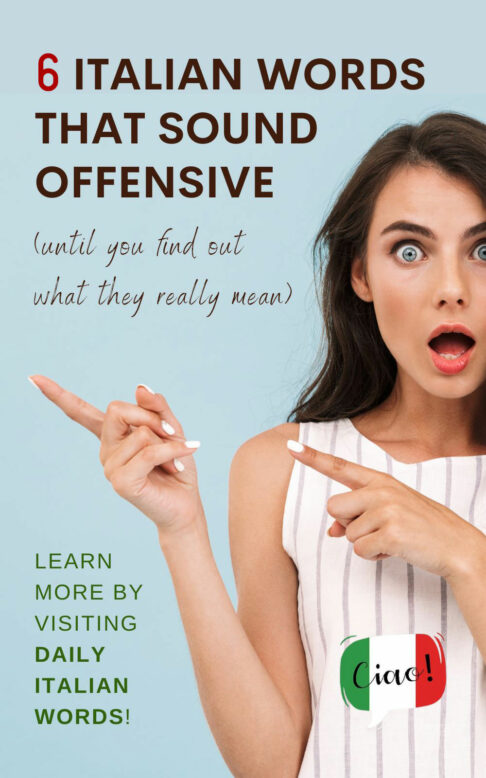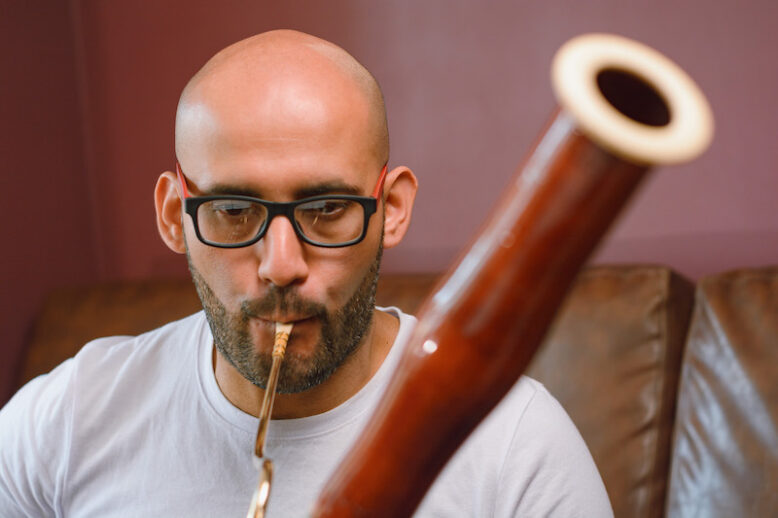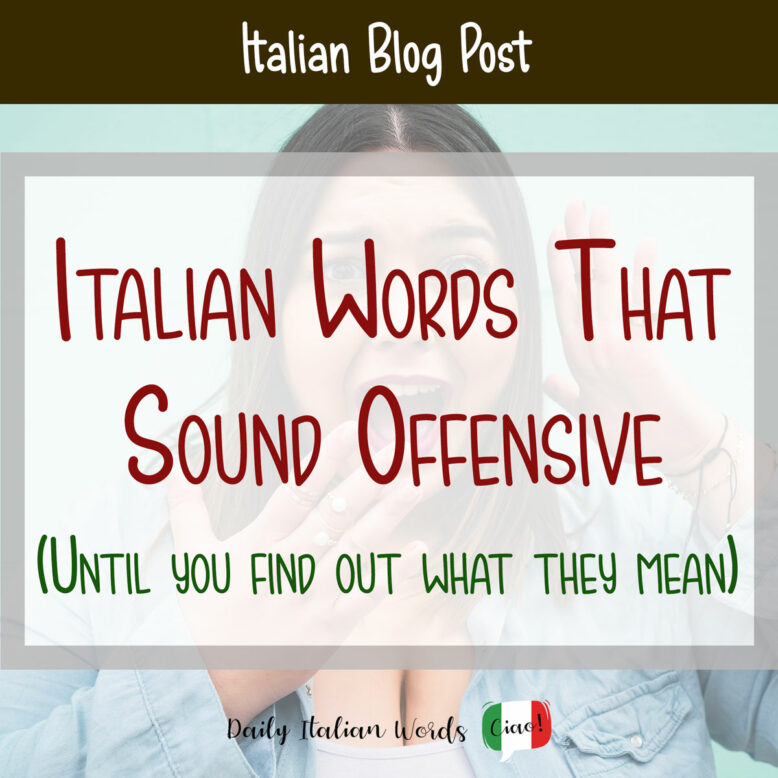When learning a new language, you may encounter words that bear a striking resemblance to offensive words in your native tongue. In fact, some of these words can sound or look so alike that you might hesitate to pronounce them out of concern for sounding impolite.
Italian, too, has its fair share of such words. Let’s explore six of the most notable offenders in this category!

1. Dai
Italian meaning: an interjection meaning “Come on!” or “Let’s go!”
What it sounds like in English: the verb “die”
I recall attending a children’s sports event in Italy and feeling slightly surprised by the parents shouting “Dai, dai, dai!” to encourage the competing children. Although the pronunciation is almost identical to the English verb die, the meaning couldn’t be more distinct. Dai is actually an interjection that conveys the same sense as “Come on!” or “Let’s go!” in English.
Dai, ce la puoi fare!
Come on, you can do it!

So what is the verb for “to die” in Italian? It is actually morire, or in its informal imperative form, muori.
2. Bimbo
Italian meaning: a young child/boy, the same meaning as bambino
What it sounds like in English: bimbo
Both the Italian bimbo and the English bimbo refer to people, but they have vastly different meanings! Bimbo in Italian is an onomatopoeic term that means young child or young boy, whereas bimbo in English denotes an attractive but unintelligent woman.
Il bimbo sta giocando nel cortile.
The boy is playing in the courtyard.

As it turns out, there is a word for bimbo or dumb blonde in Italian which is oca giuliva (literally “dumb goose”). Like the English word, it is considered derogatory.
3. Ritardo
Italian meaning: late, delay
What it sounds like in English: retard
In English, the word retard is widely recognised as offensive and derogatory when used to refer to individuals with intellectual disabilities or as an insult towards others.
When I first encountered the Italian word ritardo, I initially believed it had the same meaning as this derogatory term. However, I soon discovered that it actually means “late” or “delay“. Even so, it took me a while to feel comfortable saying it!
Il treno è sempre in ritardo.
The train is always late.
Interestingly, the adjective ritardato can mean either delayed or retarded in the derogatory sense of the word.
4. Crapulone
Italian meaning: binger, glutton
What it sounds like in English: crap
Crapulone isn’t the kind of word you’ll hear everyday in Italian, but when you do finally encounter it, you may be left wondering if it has anything to do with a certain bodily function. The good news is that it doesn’t: crapulone is actually a less common synonym for mangione, which means big eater or glutton, as well as someone that drinks a lot.
Mario è un crapulone, e ama il vino buono.
Mario is a glutton, and he loves good wine.
Crap, on the other hand, translates as cacca (colloquial and safe to use with children) or merda (vulgar).
Note: In English, the literary word crapulent exists, which pertains to the act of consuming alcohol excessively or being in a state of drunkenness.

5. Asse
Italian meaning: board, plank, axis
What it sounds like in English: ass
Our next word does sound quite similar to one of its real English equivalents, axis, but it bears a closer resemblance to the vulgar term for one’s posterior!
Le assi del ponte sono marce.
The planks on the bridge are rotting.

Regarding the actual word for bum, we have the colloquial term sedere and the much more vulgar term culo.
6. Fagotto
Italian meaning: bundle, bassoon, buffoon
What it sounds like in English: fagg*t
The word fagotto has a number of meanings, including bundle, bassoon and buffoon, but none of them have anything to do with the rude English word it sounds like.
La donna ha caricato la sua bambina nel fagotto che portava sulla schiena.
The woman placed her little girl inside the bundle she was carrying on her back.

Sadly, there are numerous derogatory terms for homosexual people in Italian including finocchio, which actually means fennel.
Can you think of any more Italian words that sound like offensive words in English? Let us know in the comments below!

Heather Broster is a graduate with honours in linguistics from the University of Western Ontario. She is an aspiring polyglot, proficient in English and Italian, as well as Japanese, Welsh, and French to varying degrees of fluency. Originally from Toronto, Heather has resided in various countries, notably Italy for a period of six years. Her primary focus lies in the fields of language acquisition, education, and bilingual instruction.


